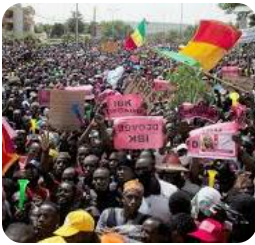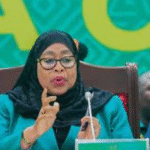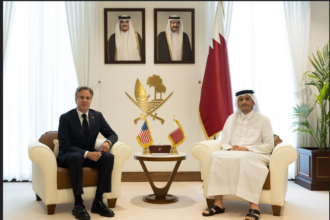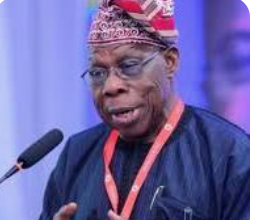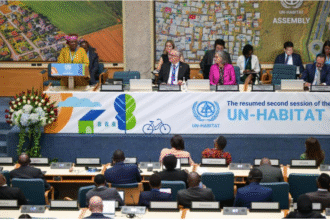By Amadou Keita
Bamako, Mali – Mali’s transition to civilian rule is facing significant challenges after the military transitional authority, led by Assimi Goïta, decreed the dissolution of all political parties on May 13th. This move, mirroring similar actions taken by juntas in neighboring Burkina Faso and Niger, is being met with unexpected resistance from the Malian political class, raising concerns about the country’s future as a multiparty democracy.
The decision, which follows heavily boycotted “consultations” recommending a five-year renewable presidential term for Goïta starting in 2025, marks a critical turning point in the transition process initiated after the 2020 coup. Critics argue that by shutting down democratic spaces, the military risks exacerbating existing security challenges, including persistent jihadism and a recurring rebellion in the north.
While political party bans in Burkina Faso and Niger were met with relative silence, the move in Mali has ignited a wave of defiance. Despite the fact that many of Mali’s nearly 300 registered parties are largely inactive, the political class views the dissolution as a direct threat to democratic principles.
In late April, protests erupted after the government repealed laws governing political parties and the opposition. Further demonstrations were planned for May 9th, but the authorities preemptively suspended all political and associative activities “until further notice,” effectively silencing dissent.
This level of public defiance is unprecedented since the military seized power in 2020. While its immediate impact on the power dynamics remains uncertain, the Malian political class is clearly positioning itself as a force to be reckoned with in shaping the future of the country’s transition.
Analysts suggest that the protests go beyond mere defense of political parties, representing a deep-seated determination to protect the democratic gains achieved through the 1991 March Revolution, which ended decades of dictatorship. Stirring this powerful symbol could unite older generations who fought against the previous regime with younger generations raised under democracy, potentially galvanizing a broader opposition movement.
Adding fuel to the fire is widespread public discontent with the military authorities’ performance after five years in power. Persistent power outages, a struggling economy burdened by military spending, and unpopular new taxes are contributing to growing public frustration. Experts warn that repressive measures against the opposition could backfire, inadvertently strengthening support for the very parties the government aims to neutralize.
To navigate this precarious situation, analysts urge the Malian government to engage in dialogue with all political forces, fostering a more inclusive transition process. The creation of a new Charter of Political Parties and an electoral agenda should be a collaborative effort involving all stakeholders.
Given Mali’s suspended membership in the African Union (AU), the organization’s role in mediating the crisis remains complex. However, Article 25 of the African Charter on Democracy, Elections and Governance provides the AU with a mandate to assist in transitions towards democracy. The AU could leverage its Africa Facility to Support Inclusive Transitions to facilitate dialogue and provide technical and financial assistance.
The future of Mali’s transition hangs in the balance. Whether the military government will heed the calls for dialogue and inclusivity remains to be seen. The coming weeks will be crucial in determining whether Mali can navigate this critical juncture and return to a path towards sustainable democracy.


